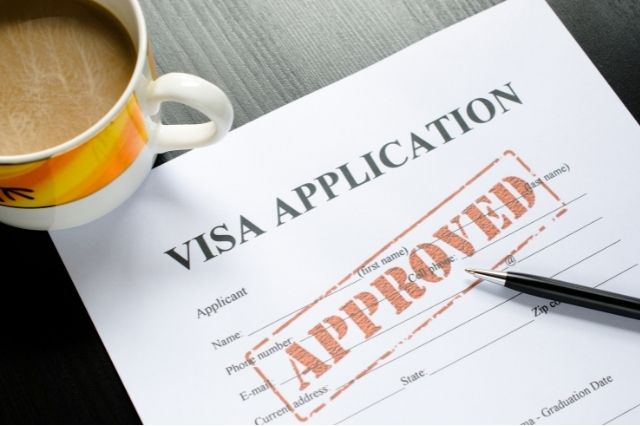

Through a rapid, stress-free, and proven process, we will assist you in obtaining UAE residence visas for your employees and dependents.

Foreigners who want to live and work in the United Arab Emirates long-term need a UAE Residence Visa. A residence visa for the UAE offers the holder a lot of benefits, including:
However, to be able to get a Residence Visa for the UAE, you must meet certain eligibility criteria, such as finding a job or investing in one of the emirates.
To qualify for a UAE Residence Visa, you have to fall under one of the following categories:
The types of UAE Residence Visas are divided depending on the purpose of your travel. As such, there is the:
When applying for a UAE Residence Visa, you must have several supporting documents, such as:
*All foreign nationals who want to live in the UAE on a Residence Visa have to pass a medical exam proving their fitness.
You have to apply for a Residence Visa once you’re already in the UAE, meaning you have to enter with an entry permit first. Additionally, just as with the entry permit, in most cases, you cannot apply for your own residence visa: you need a sponsor to apply on your behalf, such as your employer, spouse, etc.
You can only apply for a Residence Visa through a sponsor. However, in certain cases, you may be your own sponsor.
First, your sponsor has to get an Entry Permit for you at one of the following:
Once you are in the country, your sponsor has to apply for your Residence Visa at the General Directorate of Residency and Foreigners Affairs (GDRFA) of the relevant emirate in which you will live.
At the time of application, they will also pay a UAE Residence Visa fee, depending on the validity of your visa.
Once your application is approved, the GDRFA will affix a Residence Visa on your passport, and you will receive an Emirates ID, valid for the same duration as the visa.
The websites of the GDRFA in each emirate:
The fees for a UAE Residence Visa change depending on what duration your visa is issued for. For one year, the UAE Residence Visa fee is AED100.
Additionally, you will also have to pay a processing fee which also changes depending on where you apply, which can range from AED70 if applying in person or AED40 if applying online.
Please keep in mind that the visa fees are subject to change and that you will have to pay additional fees for medical exams and health insurance as well.
The difference between the Entry Permit and Residence Visa for the UAE is just as the name suggests:
The Entry Permit allows the holder to enter the UAE and it is valid for only a certain amount of time (usually up to three months). Entry permits are issued based on the purpose of your travel. For example, an entry permit for tourism purposes is a UAE Tourist Visa.
Your sponsor has to apply for your entry permit before you enter the UAE. Once you are in the country on an entry permit, your sponsor can then apply for your residence visa.
Additionally, some nationalities don’t even need an entry permit or can get one on arrival. Basically, if you are exempt from a UAE Tourist Visa, you don’t need to get an entry permit because the two are more or less the same thing.
See how to apply for a UAE Entry Permit (UAE Visa) and who is exempt.
The Residence Visa allows the holder to reside in the UAE long-term. After you enter the country, your sponsor has to apply for your residence visa from the relevant visa-issuing authorities as described above.
The duration of UAE Residence Visas depends on the purpose of your travel: they are issued for 1, 2 or 3 years and can be renewed.
However, Investment Visas or Retirement Visas are also issued for 5-10 years and are renewable.
Your sponsor has to renew your Residence Visa within the 30 days before it is set to expire.
However, your sponsor may also renew your visa after it expires if it is within the UAE residence visa expiry grace period.
The UAE residence visa renewal procedure is similar to when you first obtained your visa: your sponsor has to apply at the General Directorate of Residency and Foreigners Affairs in the relevant emirate.
The UAE authorities offer expatriates a 30-day grace period starting from the time their visa expires. This means that even if your visa has expired, you can stay for an additional 30 days, but if you do not have a visa renewal by then, you must leave the country and re-enter using an entry permit.
If you overstay, you will be fined for each day you have overstayed.
The fees for overstaying your UAE Residence Visa are as follows:
As of October 2018, the UAE government has issued a new immigration rule, allowing the widows and divorced women of UAE residents to remain in the country without a sponsor for a year, starting from the passing of their husbands or their divorce. The new rule also includes the children of said women, if any.
To qualify, the women and/or children must have been under the husband’s visa at the time of his death or the divorce and their visas must be valid at the time of application. They can apply at the GDRFA by submitting the following:
This type of visa can only be extended once.
Dubai is one of the seven emirates that make up the country of the United Arab Emirates (UAE). As such, the process for getting a Dubai Residence Visa is the same as for any other emirate in the UAE (as explained above).
You must have a sponsor in Dubai (or invest/buy property there). Then, your sponsor has to apply for your entry permit and residence visa at one of the licensed typing centers of the General Directorate of Residency and Foreigners Affairs (GDRFA) in Dubai or an Amer center.
The ability to open a personal bank account (separate from your corporate account).
The ability to obtain a UAE driver’s licence and purchase a vehicle.
As a resident of the UAE you will not pay any taxes to the local government.
The ability to sponsor your family.
The ability to rent property.
The UAE is ranked the 2nd safest country in the world by a recent study.